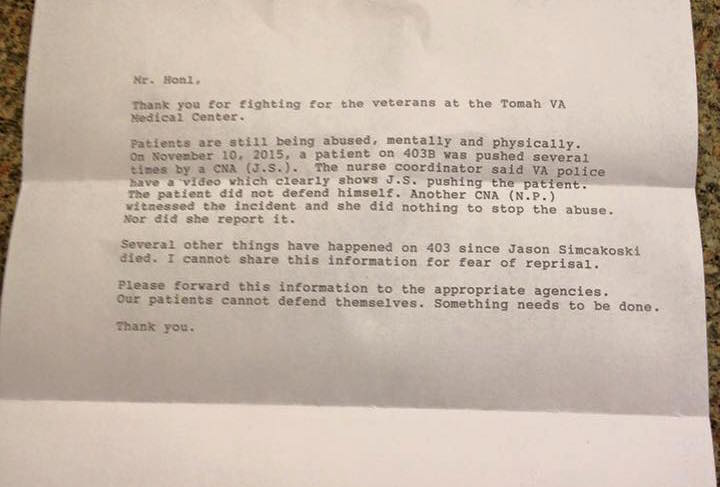Should For-Profit Colleges Burn at the Stake?

To see what it would be like to get a call from a recruiter, I submitted my phone number to one of the colleges while checking out their online customer forms. Some days later I received a call. “Let’s talk about your future,” the operator said. I replied, “Oh, that’s ok, I was just fiddling with your online forms.” “So, you don’t want to invest in your future with a four year degree?”
Of course, I already have a four year degree and am currently in law school. Needless to say, the comment “invest in your future” did not resonate with me, but I could see why it would make it hard to simply say “no” for some people.
For-Profit colleges have been accused of nasty recruiting tactics. These tactics rely on triggering fear and pain to convince potential students to sign up. So far, this may not be bad if the students who graduated were greeted with jobs. But that is not always the case.
The fear in Congress is that veterans are being unfairly targeted because of their GI Bill benefits. When veterans use up their benefits on these universities, they are not as successful in finding work as veterans graduating from brick and mortar universities. Or rather, this is the fear of Congress.
In 1998, Congress changed the law to allow 90-10 split between federal aid and money that comes from outside of the federal allocations. The GI Bill, since it comes from veterans, is counted as the 10 percent. Legislators are concerned veterans are inappropriately targeted by recruiters for that reason. New legislation would stop that. The GI Bill would no longer count toward that 10 percent and the split would become 85-15.
In looking at the facts at both sides of the argument, it reminded me of a skit from Monty Python and the Holy Grail. There were some facts, some fear, and a lot of unanswered questions. So, should we burn all For-Profit colleges at the stake?
Sir Bedevere: There are ways of telling whether she is a witch.
Peasant 1: Are there? Oh well, tell us.
Sir Bedevere: Tell me. What do you do with witches?
Peasant 1: Burn them.
Sir Bedevere: And what do you burn, apart from witches?
Peasant 1: More witches.
Peasant 2: Wood.
Sir Bedevere: Good. Now, why do witches burn?
Peasant 3: …because they’re made of… wood?
Sir Bedevere: Good. So how do you tell whether she is made of wood?
Peasant 1: Build a bridge out of her.
Yes. Let’s build a bridge out of them. Rather than revisit the arguments presented, we decided to ask veterans what veterans should be allowed to do with their benefits (Huffington Post: Romney Has Some Great Friends Who Are For-Profit College Owners).
One veteran wrote, “We earned it!” in response to the idea of the government stepping in to tell veterans where they should spend their money. Another wrote, “If they are truly subpar programs, then they should not get funded.” Finally another wrote, “Our service people gave their all for us. We should allow them to choose the college of their choosing.”
How could veterans seem to be so opposed to the hysteria? “Let us choose.” “We earned it.” Veterans were telling me that they are smart enough and responsible enough to choose for themselves.
However, the legislation was not preventing veterans from attending For-Profit colleges. It was merely changing the incentive to recruit veterans so that all students would be equally pursued. Or, at least that’s what it appeared to be on the surface. But, is the witch made of wood?
We are heading to Washington D.C. to look into the matter. My hunch is that we will find facts that support some of the colleges but not others. I am concerned that the tuition prices are much higher than they should be for distance learning.
In theory, distance learning is supposed to create economies of scale, offering high quality educations at more affordable prices to more students. Currently, tuition costs appear to be as high as traditional nonprofit colleges. But when a witch is made of wood, perhaps inflated tuition is ok. If there were jobs at the end of the rainbow for all college grads, this issue would be moot. Unfortunately, that is not the case for now and jobs are essential. Plus, not finding work makes it impossible to pay your federally backed student loans.
We’ll get back to you with our investigation. According to the Monty Python skit, for those who are curious, this is what we do with witches:
Sir Bedevere: But can you not also build bridges out of stone?
Peasant 1: Oh yeah.
Sir Bedevere: Does wood sink in water?
Peasant 1: No, no, it floats!… It floats! Throw her into the pond!
Sir Bedevere: No, no. What else floats in water?
Peasant 1: Bread.
Peasant 2: Apples.
Peasant 3: Very small rocks.
Peasant 1: Cider.
Peasant 2: Gravy.
Peasant 3: Cherries.
Peasant 1: Mud.
Peasant 2: Churches.
Peasant 3: Lead! Lead!
King Arthur: A Duck.
Sir Bedevere: …Exactly. So, logically…
Peasant 1: If she weighed the same as a duck… she’s made of wood.
Sir Bedevere: And therefore…
Peasant 2: …A witch!




Let us choose!! Depending on ones chosen field of study, and their university of choice, I think veterans can receive a quality education online. Western Governors University and U of Phoenix are excellent schools. I know several veterans who have attended these colleges and received great employment offers upon graduation. Online education is a growing trend in today’s market, and becoming more widely accepted in the business world. I have attended traditional colleges and online at reputable schools, and I dont see any difference in the quality of education. In my opinion I would hire an online student v.s. traditional, for the mere fact that it takes more discipline to earn a degree online. I know several people who have graduated from traditional schools, who bought their test answers all the way thru to graduation. Did they learn anything? no. Are they working in their field of study? no. Big derrr there!! My chosen field is accounting, and it is just as challenging online as it was in a traditional college. What I believe it comes down to is affordability, schedule, what one puts into their education (drifter or serious learner), and how well they sell themselves in the interview. Believe me, if anyone skated thru college whether traditional or online, it will come out in the interview, or shortly after hire. Veterans are quality professionals and are highly sought after in the corporate world. I believe Veterans (especially those who work full time and or have families) should have the right to choose online or traditional. As for online, congress should give the same BAH rates for online as they do for traditional.
The Current GIBILL Chapter 33 Post 9/11 allows for a cap of $17,500 / year to goto ANY SCHOOL that the veteran attends towards a Bachelor’s or Masters. It also includes BAQ and BAH for ground based programs and 1/2 BAQ/BAH for online programs. The biggest difficulty I see just like when I used my MGIB – is the monthly pay out on BAQ vs. a universities need to have your housing paid for per SEMESTER. This maybe a cause for a loan. But a loan for TUITION? I think that $17,500 year for ANY school – EXCEPT the Ivy Leagues’ should be MORE than enough to cover the cost of annual tuition! If the school you are looking for is ASKING for more than that tuition amount – IT BETTER BE for either “out-of-state” reasons – which should not apply to miltiary applicants ANYHOW – OR – it BETTER be a DAMNED good school who deserves more than $17,500 a year. Bottom if you have Chapter 33 at 100% there should be NO REASON to take out LOANS for tuition. BE AWARE! Non profit vs. profit – has no bearing to me – Tactics, Tuition, ACCREDITATION and RESULTS (reputation is a good thing too) is WHAT should matter. God Bless our servicemembers. God Bless our Veterans.
Not a fan of these colleges. They do target us. They rush the process and leave you in the dust that is them taking your money. Then, when my GI Bill, didn’t show up in time, they tried to force me into a loan, didn’t take me off their books when I didn’t want it and tried to withdraw and are still trying to say that I owe them 1000 dollars. AIU was that school. Dirty.
BTW, if it was meant for everyone to have a degree we all would have it and then what would be the value in that. College is tough and drop-outs rates are just as high among non-veterans.
If they are still maintaining current information, try researching your prospective colleges at these US DOE websites:
https://nces.ed.gov/collegenavigator/
https://ope.ed.gov/accreditation/Search.aspx
I believe that this is another tactic to circumvent paying out the benefits. The benefits are extremely expensive and with the down turn in the economy more individuals are returning to school. I believe that this was unprecedented and it is costing more than they excepted. If they remove the right to chose program then a lot of individuals that are working and raising families will find it harder to use the benefits. I went to a for-profit school and interesting enough it is looked upon with esteem. (To my surprise.) I also feel like everyone does not learn the same and limiting your options is going to hurt a lot of individuals that are at the lower end of the totally poll (enlisted veterans and sailors utilizing the benefits).
I have long been a profundant for in-service college entrance counseling of some sort. while I do believe that the vets should be able to do with their benefits what they want, I also know that to get at the federal money behind a vets educational benefits, they will be specifically targeted by unscrupulous college sales people. They know that to get the big piece of the benefit pie they have to go to the source and that is the vet who signs on the dotted line.
colleges that specifically target veterans should be named on a list of colleges with questionable dealing. Made public to all vets and to the people they protect.
$2700 for two online classes with Allied Business School. Free $500 laptop. I went over the deadline. Now I only need to pay $150 per class to get back on it. Come to find out there are weekend classes that offer the same thing for less than $200. They are not even credit classes. They are just certification classes in real estate.